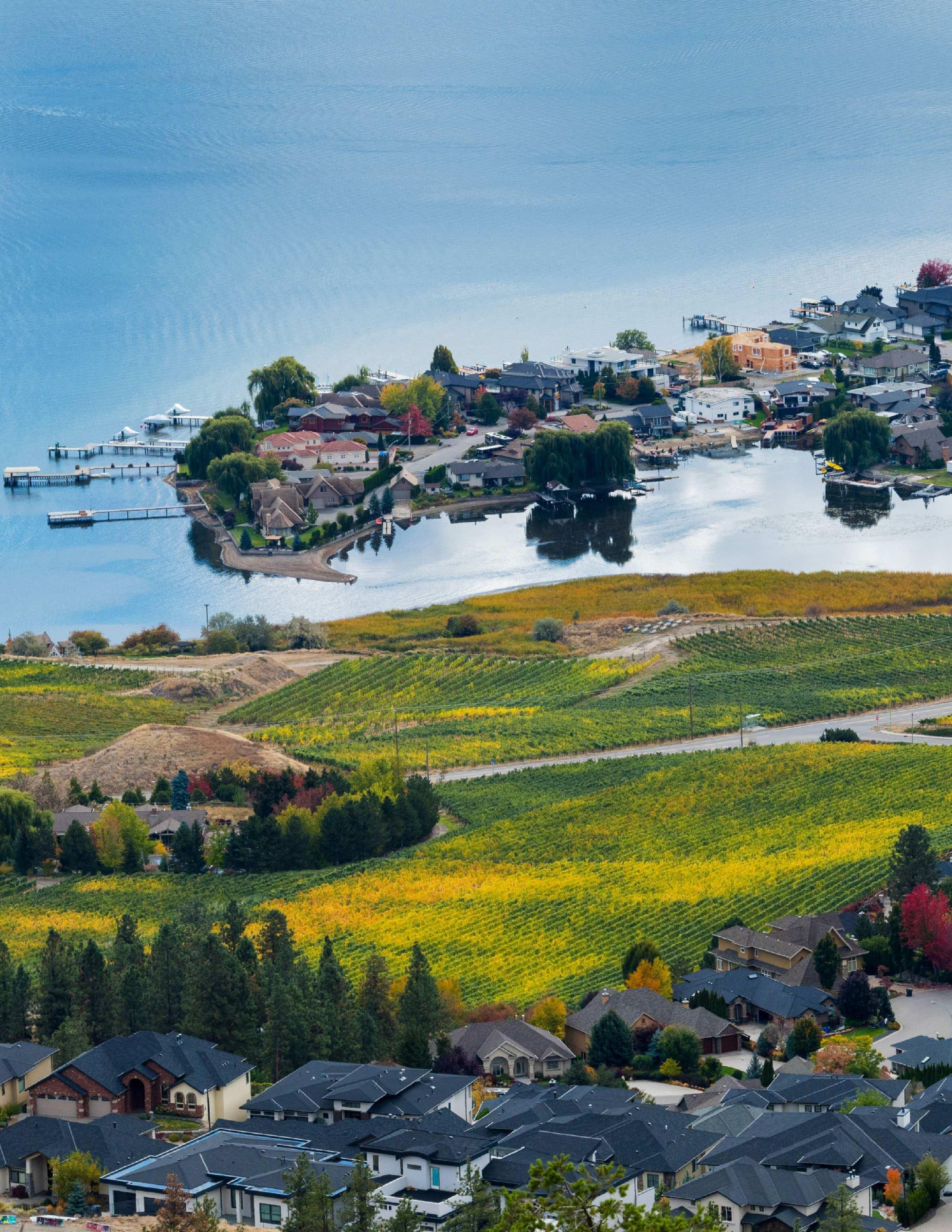




The City of West Kelowna is a vibrant and growing community of more than 40,000 people. With stunning vistas, parks and trails, orchards, wine and ale trails, recreational amenities and more, West Kelowna is truly the place to be.
Situated on the traditional territory of the syilix/ Okanagan People, on the central, western hillsides of Okanagan Lake, West Kelowna is a rapidly growing city while respecting our rural sophistication.
Recognized for our outstanding outdoors, our active community can be seen by paddleboarding or kayaking along the shores of Okanagan Lake, mountain biking on best-in-class trails, and hiking and snowshoeing through centuries-old pine forests.
Visiting West Kelowna’s award-winning wineries and local shops, and indulging in local produce at farms and farmers markets, cafes and artisan studios make West Kelowna a memorable community to live, work and play.
The City maintains many amenities to enjoy, which include more than 130 athletic fields, beaches, boat launches, parks, sports courts and trails, two arenas, an air supported multi-sport facility, a newly expanded skateboard park and indoor aquatic centre and four community centres.


The Local Government Climate Action Report is a requirement of all BC municipalities that have become signatories to the BC Climate Action Charter, and provides a means of tracking the progress our municipality has taken in meeting our commitment to reducing Greenhouse Gas (GHG) emissions, and in adapting to climate change.
Aboutthereporting
Corporate initiatives and actions are those that directly benefit or offset GHG emissions from City operations. A community action, while still initiated by the City, has the benefit of reducing or offsetting emissions in a particular area or neighbourhood or the entire municipality.
The BC Climate Action Charter is an agreement that the Province of British Columbia, Union of BC Municipalities and local governments have signed to commit to take action on climate change. The City of West Kelowna has been a signatory since 2007.
The City’s community climate action goals, as stated in the Official Community Plan, are aligned with the provincial emissions reduction targets and include:
A 40 per cent reduction in GHG emission by 2030 from 2007 levels;
A 60 per cent reduction in GHG emissions by 2040 from 2007 levels; and
An 80 per cent reduction in GHG emissions by 2050 from 2007 levels.
These targets are related to overall community climate action. The City's Corporate Climate Action Plan, completed in 2023, outlines reduction targets specific to the City's corporate emissions from its facilities and fleet, and includes recommended actions to achieve reductions. The completion of a Community Climate Action Plan is included in Council's 20222026 Strategic Priorities and will be completed in the future.

When we think of what our community could look like in the future we must consider how we can get there, the goals we might establish for ourselves, and the process for how we may complete them. In thinking of West Kelowna’s future with respect to climate change, it is evident that we must satisfy the commitment we made as a signatory to the BC Climate Action Charter, beyond this, we must think of what we can do to ensure our community continues to prosper. Below are some things we may consider to ensure that we continue to grow in a sustainable, fiscally responsible, and desirable way.
We may consider how our goals are common amongst our neighbours; Westbank First Nation, the District of Peachland, and the City of Kelowna. They all play a vital role in the development of the Westside and are integral to the function of our community. We share businesses, facilities, natural areas, and common resources. Together , we can consider how to move forward, adapt to and mitigate the effects of climate change. Some initial steps may involve information and knowledge sharing. In recognition that we all share the same outcomes of climate change, we must put our collective knowledge together to work towards the same goal, and sharing information is a great way to get there. We may start to think of ways we can work together to plan our communities, as well as how we may best utilize the facilities and infrastructure we have to meet the demands of our residents’ needs.
A Climate Action Plan is essential to establishing, monitoring, and implementing objectives related to climate change. In 2023, the City adopted our Corporate Climate Action Plan. This guiding document compiled an energy and emissions inventory on all corporate assets, and developed a plan that identifies the best opportunities to reduce emissions and costs from corporate operations.
The City of West Kelowna aims to become a more complete, compact and connected community. The plan provides clear sustainable objectives for more efficient municipal operations in the future with the goal of meeting our emissions reductions targets.
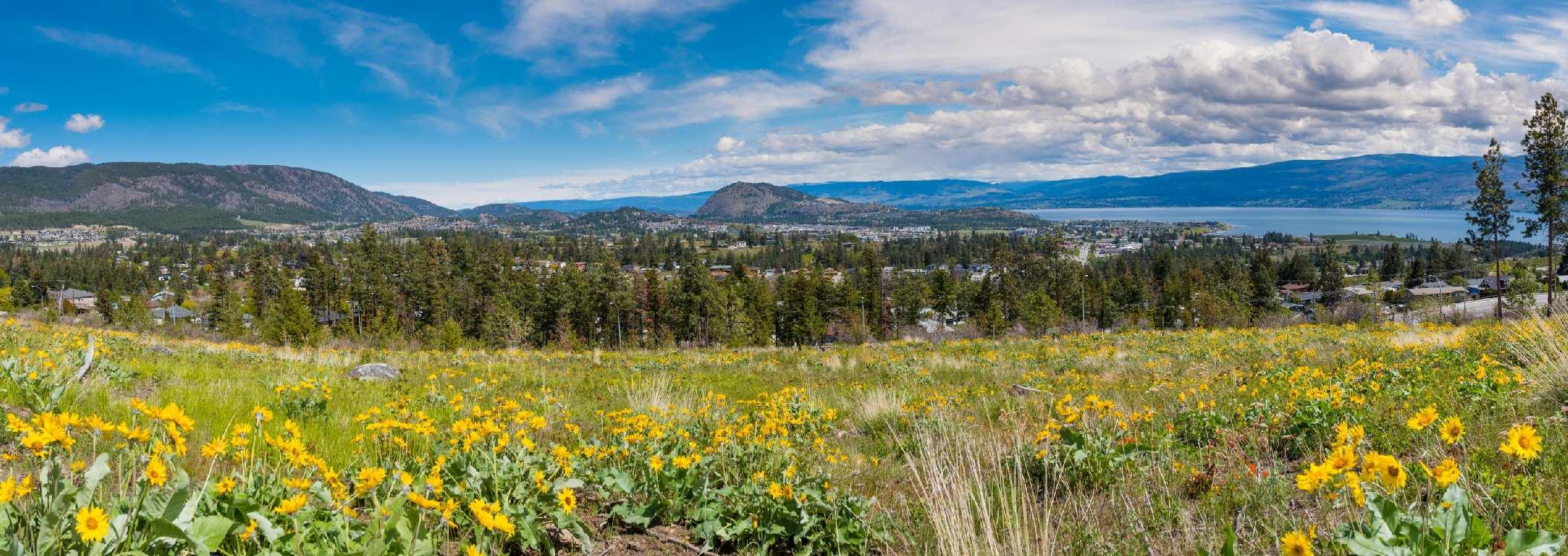
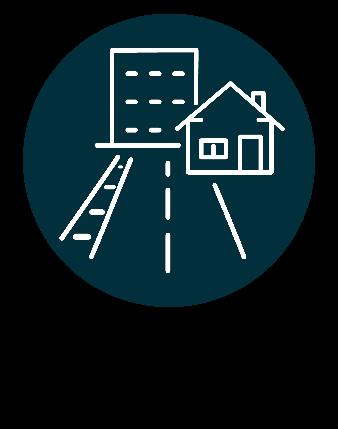



We will invest in building, improving and maintaining infrastructure to meet the needs of, and to provide a high quality of life for, current and future generations.
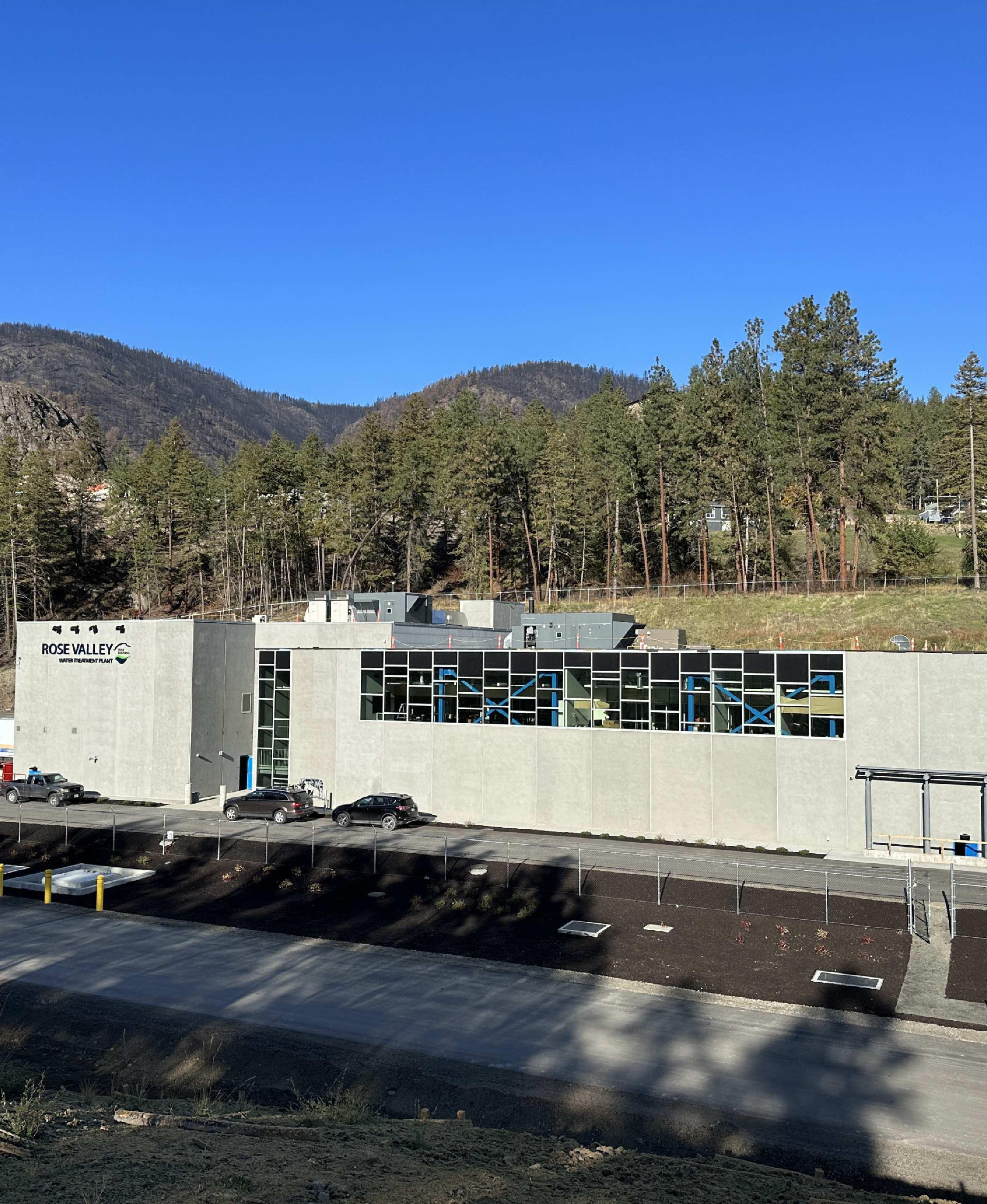
We will work with stakeholders throughout the region to advocate for and support efforts aimed at helping West Kelowna businesses prosper. With a focus on the future, we will advance opportunities to expand our economy, increase employment, and develop the community in ways that contribute towards prosperity for all.
We will provide opportunities for the residents of West Kelowna to build connections, celebrate successes, embrace the community’s strengths and diversity, address shared needs, and contribute to shaping the community’s future.
We will pursue through direct action, advocacy, and collaboration with local and regional service providers, investments in community health, needs-based housing, emergency preparedness, policing, and other services that foster safety and well-being in West Kelowna.

$19.9

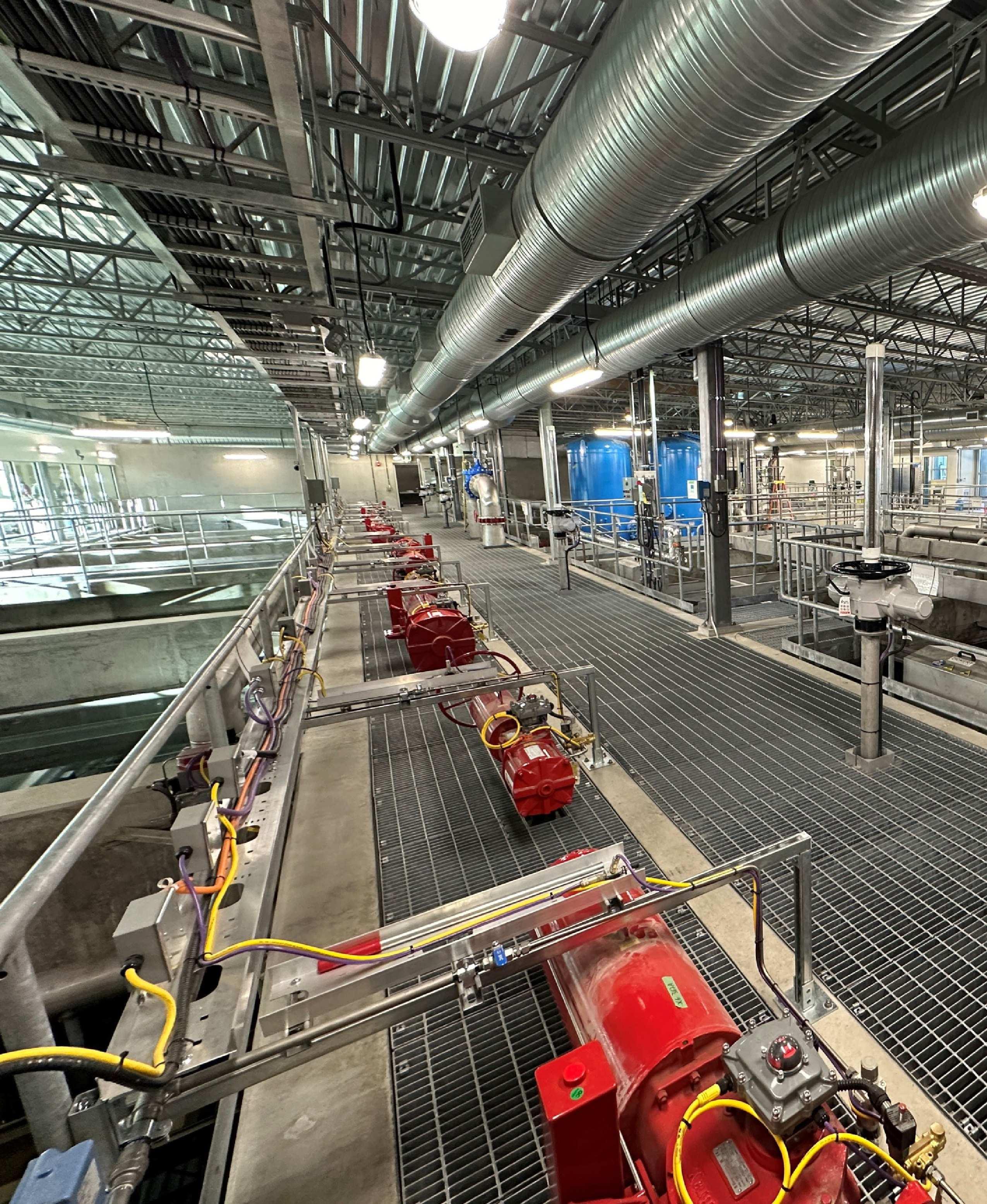


37 10.4 8.9

2

190
53 million invested in Rose Valley Water Treatment Plant active or completed infrastructure projects kms of new sidewalks and bike lanes kms of roads resurfaced accessible parks/ramp projects completed (Julia’s Junction and Beechnut) wildfires actioned and/or supported
3 plans completed and adopted; OCP Update, Housing Strategy and Climate Action Plan.



22
220
wildfire mitigation projects active or completed new urban trees planted
FireSmart grants awarded to residents of West Kelowna and WFN
By 2040, West Kelowna expects to welcome an additional 12,000 new residents to our community. The update of the Official Community Plan (OCP) helps guide growth and establish policies that make West Kelowna truly the place to be and reflect the Community Vision established in 2021.
After a three-year community visioning and update initiative, which included extensive public consultation, Council adopted the updated Official Community Plan.
The updated Official Community Plan established two urban centres, five neighbourhood centres, and an urban-growth boundary to concentrate development. Significant changes include moving from six to 19 storeys in Westbank Centre, identifying Boucherie as a new Urban Centre, moving from six to 12 storeys and identifying five neighbourhood centres for up to six storeys. The Zoning Bylaw will continue to be reviewed and updated to adjust for the changes contained in the new OCP.
Learn more and find the OCP update at westkelownacity.ca/ocp.

Service Type
2022 Reported Numbers (tonnes of carbon dioxide equivalent or tCO2e)
2023 Reported Numbers (tonnes of carbon dioxide equivalent or tCO2e) West Kelowna operations2,0642,064
Services delivered by contractors437385
Total emissions from City and contracted services 2,5012,449
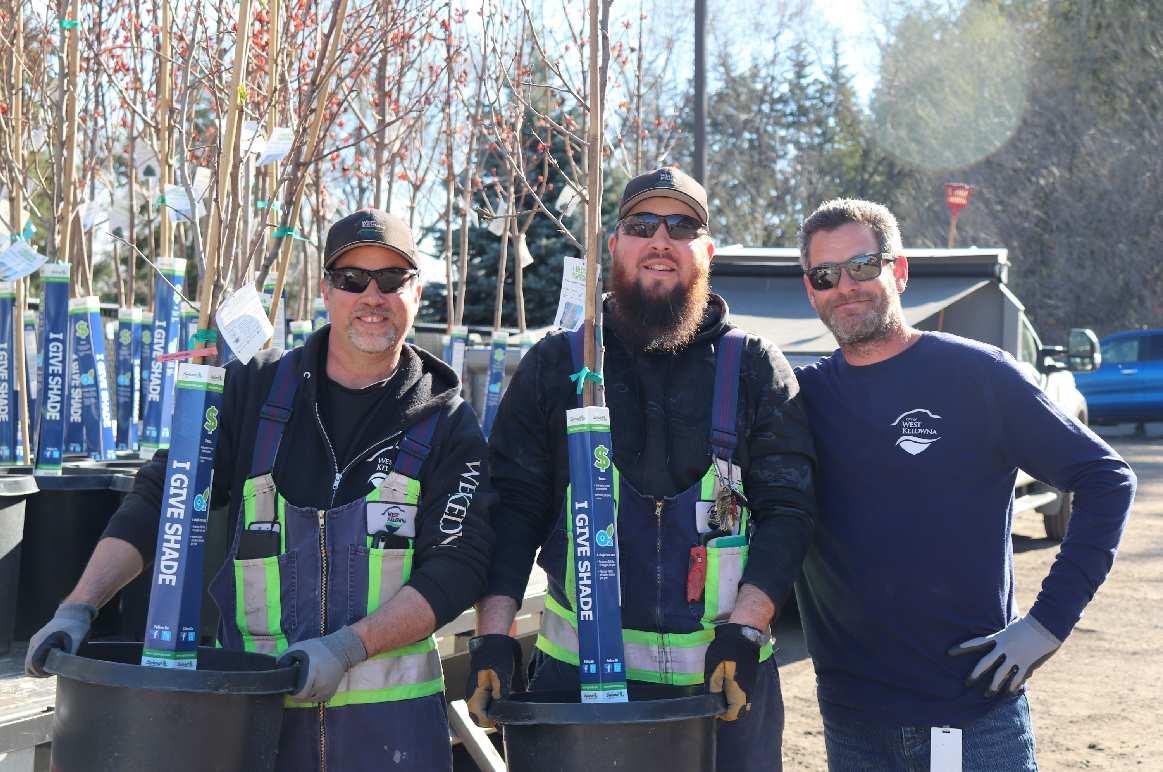



Plans and policies should establish goals and objectives to protect the environment, conserve energy and reduce greenhouse gas emissions. Land use plans and policies that focus on smart growth principles – compact, complete, connected, and centered – play key roles in reducing greenhouse gas emissions.
The City’s updated Official Community Plan (OCP) was adopted to help guide growth for the next 20 years:
Public open houses and consultation were done to help inform the proposed changes. A public hearing was held and the OCP was adopted.
West Kelowna completed its Housing Strategy to address gaps as outlined in West Kelowna’s Housing Needs Assessment (completed in 2022). The strategy provides a framework for future housing needs.
Council established its first Accessibility and Inclusion Committee, in 2023, which will be guided by the City’s first Accessibility and Inclusion Plan, to be done in 2024 - a plan formed with input from the community with the aim to create a more accessible West Kelowna.
Council approved updates to the Zoning Bylaw to better align with the adopted OCP.
During 2024, further work is needed due to Provincial Housing Mandates impacting the Official Community Plan, Zoning Bylaw and related development procedures.
Public consultations will be held on the proposed Transportation Master Plan, Parks Master Plan and Recreational Trails Master Plan.
In 2023, Council ratified the first ever West Kelowna RCMP Strategic Plan. The Strategic Priorities, covering the period of 2024-2028, include:
1. Reinforce Road Safety
2. Reduce and Prevent Property Crime
3. Abate Violent Crime
4. Enhance Police/Community Relations
Planning work will include an update to the Water Master Plan, the Sewer Utility Master Plan and the Cemetery Master Plan.
The City adopted its first Corporate Climate Action Plan (CCAP):
The CCAP began looking at energy and emissions uses related to City-owned assets including buildings, fleet, equipment, etc. The plan recommends how energy use and greenhouse gas emissions can be reduced throughout municipal operations.
Council adopted the 2023 Budget and Five-Year Financial Plan Bylaw, which included further investments in community and corporate climate actions.
Complete the Fire Services Plan.
Update and implement the Green Fleets Strategy.
Council will adopt the 2022-2026 Council Priorities: 2024 Update and the 2024 to 2028 Financial Plan which will establish further corporate and community climate action objectives.
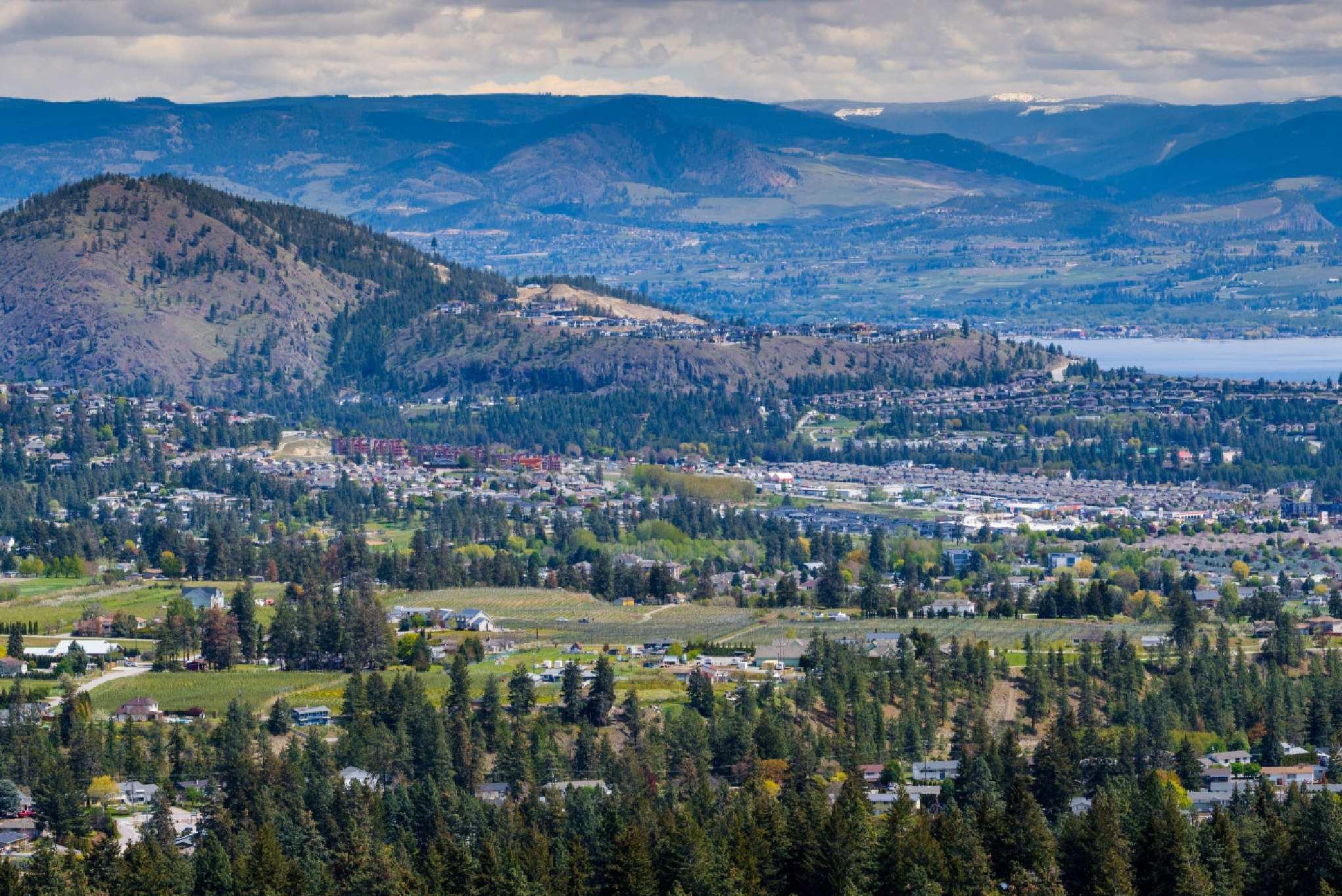
Low-emissions buildings and efficient lighting and streetlights, such as LEDs, use the least energy and natural resources to provide comfort and safety and reduce operating expenses, particularly over the long term. Green buildings use renewable energy sources, such as solar and geothermal, for heating, cooling and power.
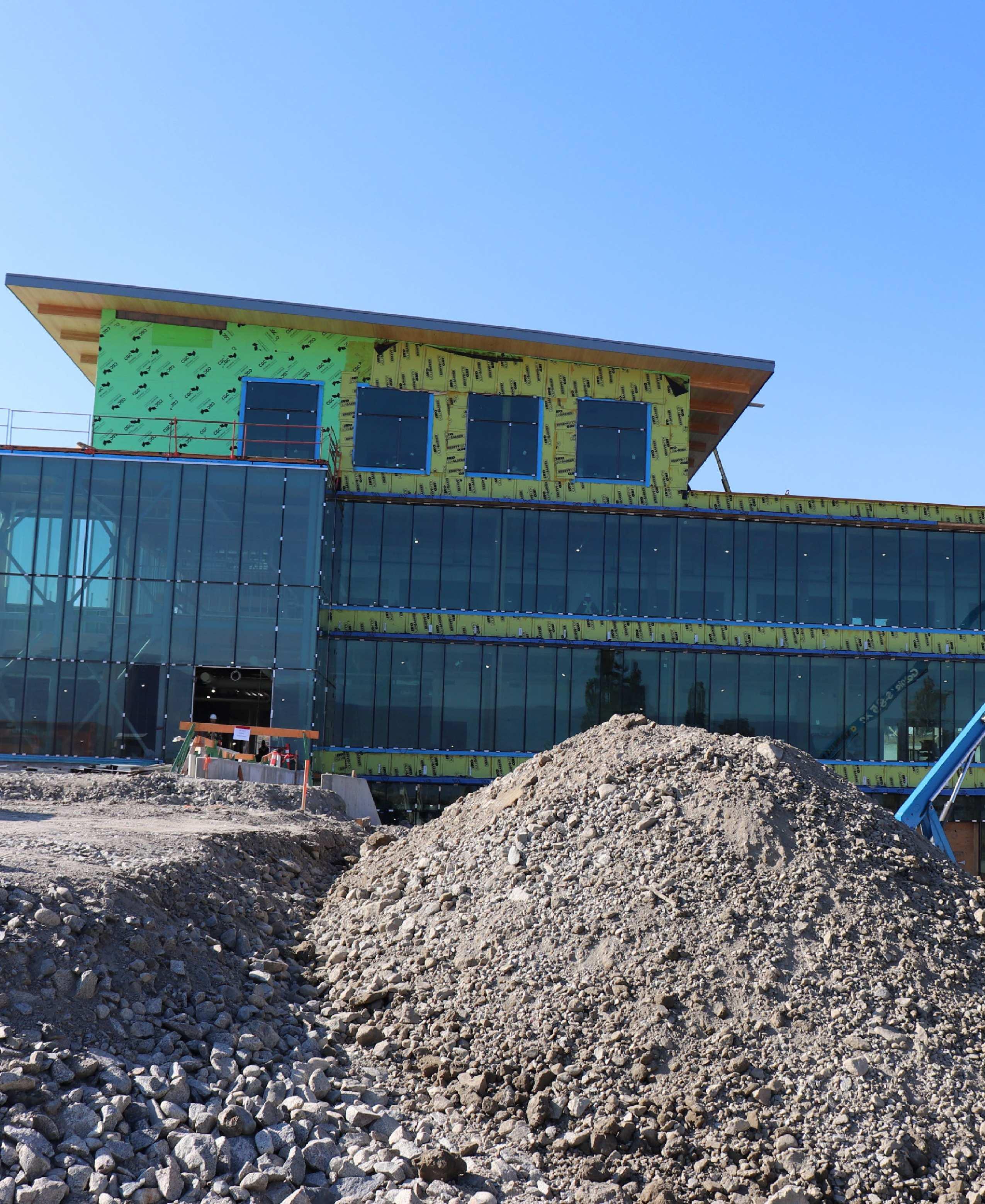
All new applications submitted to the City for Part 9 residential building permits will be required to have designs that will comply with Energy Code for Step 3, per amendments to the Building Act and B.C. Building Code.
The City continues the planning and design process to return Mount Boucherie Community Centre to the community. The ChildCareBC New Spaces fund has provided funding to include 80 new, centrally-located childcare spaces.
The City continued to encourage and incentivize efficient, mixed-use, dense development in urban centres that have robust amenity contributions such as bike facilities, electric vehicle charging stations, parks and trails, playgrounds and sidewalks that use alternative energy.
The City continues to plan for the upgrade and expansion to Johnson Bentley Memorial Aquatic Centre.
The City will continue LED conversions on more than 1,700 lampposts.
Opened Fire House #30 as the centralized hub for efficient West Kelowna Fire Rescue administration.
The City Hall/Library Building will open to the public centralizing City operations. This new civic centre is set to be an economic catalyst with the additional benefit of providing more accessible civic services in the Westbank Urban Centre including municipal services, the Okanagan Regional Library, ICBC, ServiceBC, MLA and MP offices. It will also be the largest mass timber building in the Okanagan.
The City began construction of a centralized Operations Centre that is set to be completed in 2024 with an approved budget of $9.8 million.
The Fire Hall #32 Replacement Project is scheduled to commence in 2024. This new $14.3 million facility will replace the existing out of date fire hall with new, modern space to ensure the safety of the firefighters and the equipment we use to protect our community.
The City will replace the following with higher energy-efficiency equipment:
The radiant heater in Jim Lind Arena.
The air conditioning unit for the Westbank Lions Community Centre.
The hot water redundancy boiler in Royal LePage Place.
The City’s Facilities Department will conduct a FortisBC Energy Study for specific buildings, including energy retrofits in Royal LePage Place.

Renewable and low-emission energy sources for heat, air conditioning and power achieve significant GHG reductions. Renewable energy sources include recovery from waste such as biogas and biomass, geothermal and solar thermal, micro hydroelectricity, heat pumps and wind. Systems can be implemented to varying degrees ranging from individual homes to entire neighbourhoods via district energy.
The City continues to lobby and work with BC Hydro to secure a second, reliable power line with the only current power source being that between the Nicola substation in Merritt and the one in Westbank.
Staff continues to operate and maintain:
The geothermal energy system at Royal LePage Place arena.
The West Kelowna RCMP detachment’s solar hot water heating system.
The City continues to purchase carbon offsets, as part of the annual operations at the LEED® Silver Certified West Kelowna RCMP detachment, through Bullfrog Power.

Green spaces are essential to planetary climate regulation and carbon dioxide and oxygen cycles. Green spaces can be protected through the creation of parks, green ways and land conservancy trusts, community forests, and land use covenants and regulations. Brownfields, contaminated sites and clearcuts can be remediated and wetlands, waterways and other naturally occurring features can be protected to aid in global GHG emissions reductions. Bylaws and policies can be implemented to protect green space and prosecute and penalize polluters.
The City of West Kelowna’s fourth annual Urban Re-Leaf Program continued with 500 trees available.
Construction of Julia’s Junction, an inclusive play space for all abilities, was completed in Westbank Centre Park.
The City renewed parks irrigation systems to ensure ongoing efficiencies.
The City enhanced 12 neighbourhood and waterfront parks to provide services closer to home:
Playground equipment was replaced, irrigation was upgraded, and landscaping was enhanced. Beechnut Park and Casa Loma Dock Park received accessibility upgrades, including paved pathways and picnic areas.
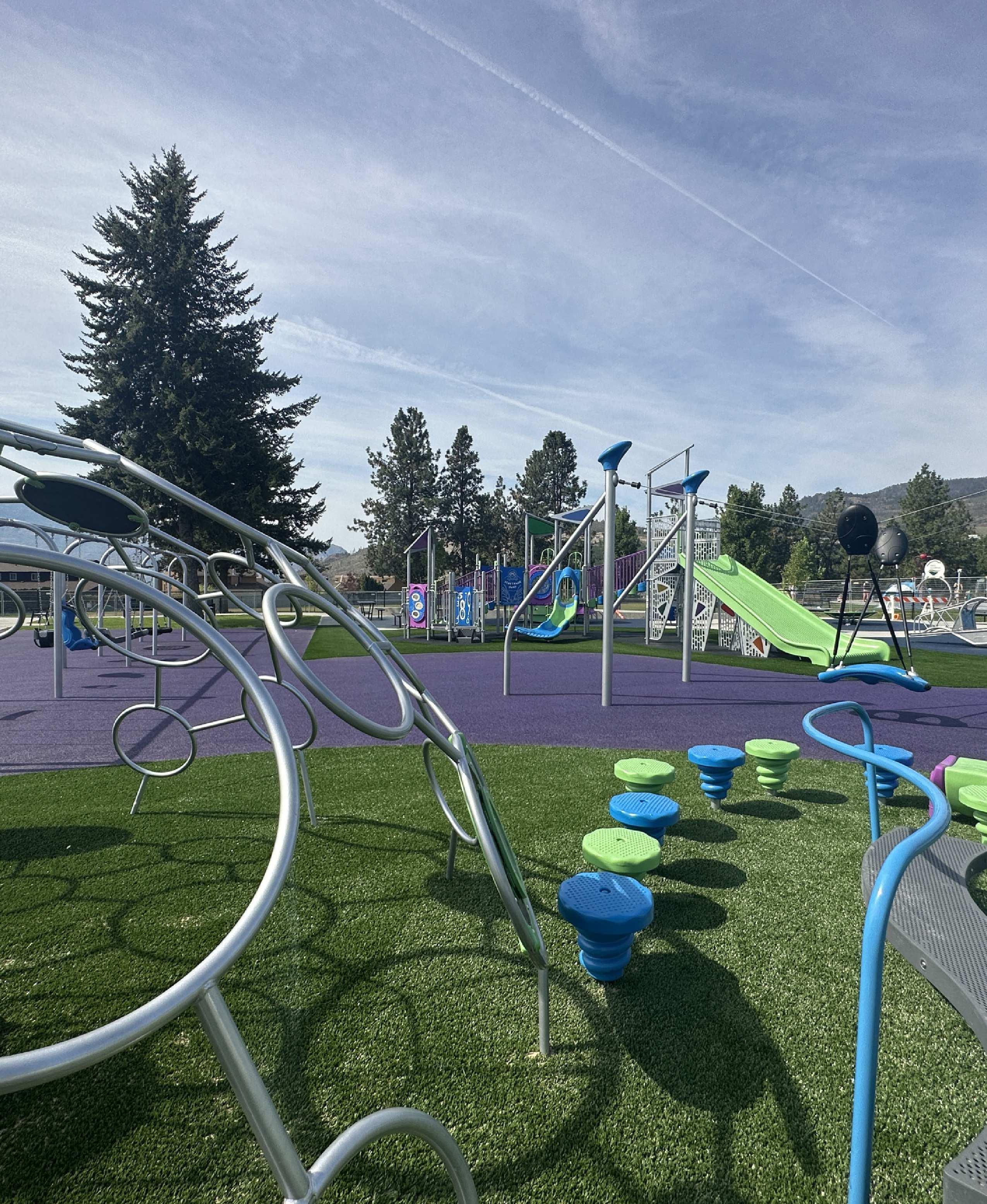
The City will update the Parks Master Plan which will provide recommendations to enhance municipal green spaces.
The City will update the Recreational Trails Master Plan which will provide recommendations to enhance municipal trails.
The City will renew and replace some parks irrigation systems to ensure ongoing efficiencies.
The City will continue to provide the Urban Re-Leaf Program which helps:
Create the air we breathe and act as filters, working to keep it clean. Remove carbon dioxide and other greenhouse gases from the air, which in turn cools the earth.
Diverting waste from landfills and preventing illegal dumping on public lands improves air and water quality, lowers greenhouse gas emissions, reduces environmental impacts and supports sustainable land management. The primary goals of solid waste management continue to be reduction and reuse, with recycling being the next preferred option and disposal being a last resort.
The City continued to partner with the Regional District of Central Okanagan to provide curbside collection of recycling, waste and yard waste, thus reducing trips to the landfill.
Council directed staff to proceed with the first steps in becoming a Bear Smart Community by undertaking a Bear Hazard Assessment.
Garbage continues to be the main attractant in Westside neighbourhoods and the program continues to receive resident requests for more homeowner education and new, innovative solutions to manage waste around the home.
The City will consider installing additional bearproof garbage cans in its parks and public spaces.
The City will continue to work with WildSafeBC to conduct a Bear Hazard Assessment, which would lead to the creation of a Bear Conflict Management Plan in an effort to reduce bear/human encounters, improve community safety, and to get residents thinking about better ways to manage their waste.
The City will continue to partner with the Regional District of Central Okanagan in providing the centrally-located Westside Residential Waste and Recycling Centre.
The City continues to participate in the Commercial Waste Diversion Program.
Staff actively participates in the Solid Waste Technical Advisory Committee (SWTAC).
Agendas, annual reports, seasonal recreation guides and other traditionally paper-intensive products are now produced digitally, with print versions only available on demand or for accessibility needs.
The City will continue the Paperless Project to reduce paper waste.
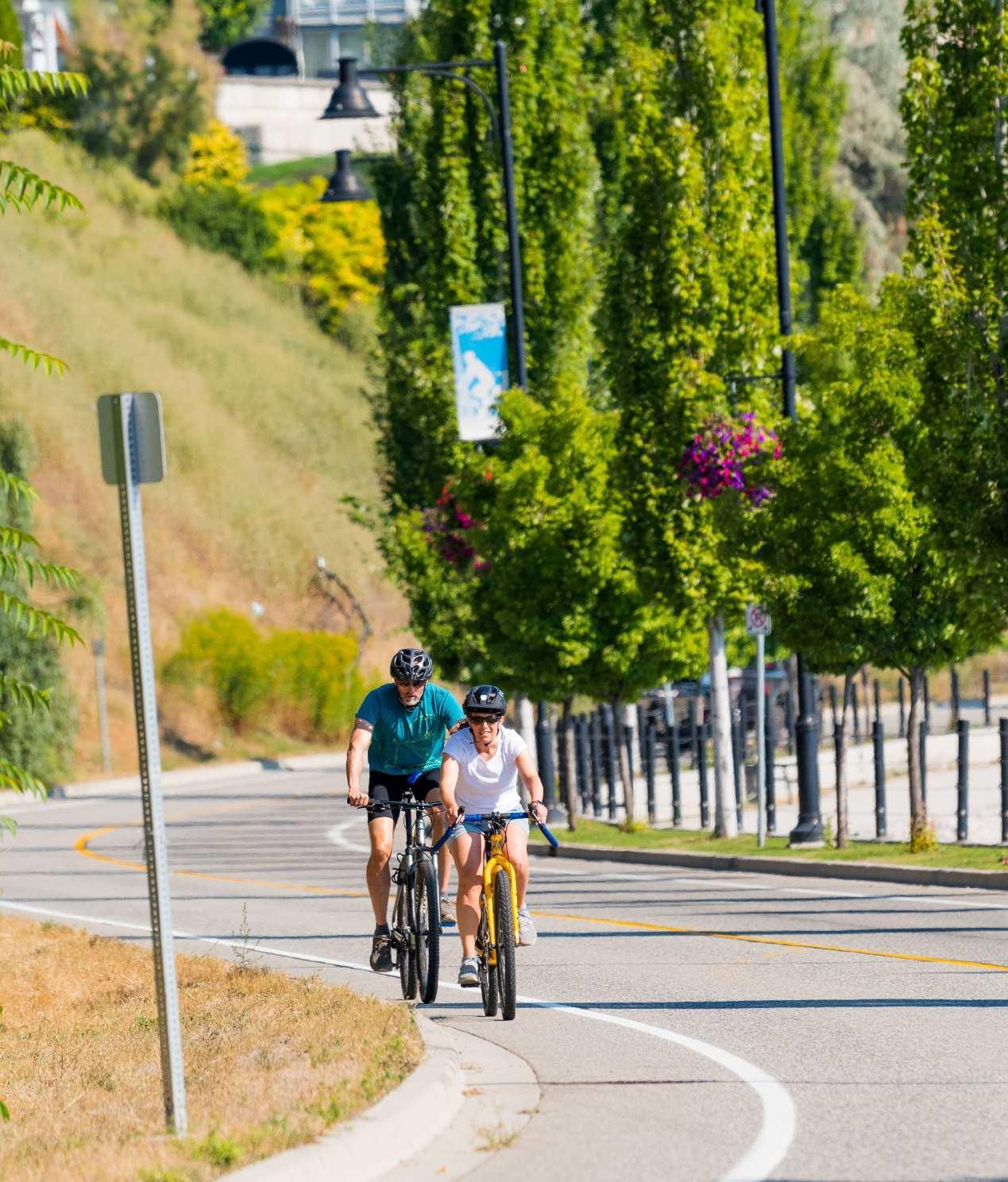
Cycling, electric bikes and e-vehicles, public transit use, ride-sharing and walking significantly reduce GHG emissions and create more breathable and liveable communities. Moving goods and people in an efficient manner and providing varying modes of transportation are key means of reducing emissions. Providing new infrastructure for walking and cycling are among the approaches the City of West Kelowna is taking to tackle climate change and create a more liveable community.

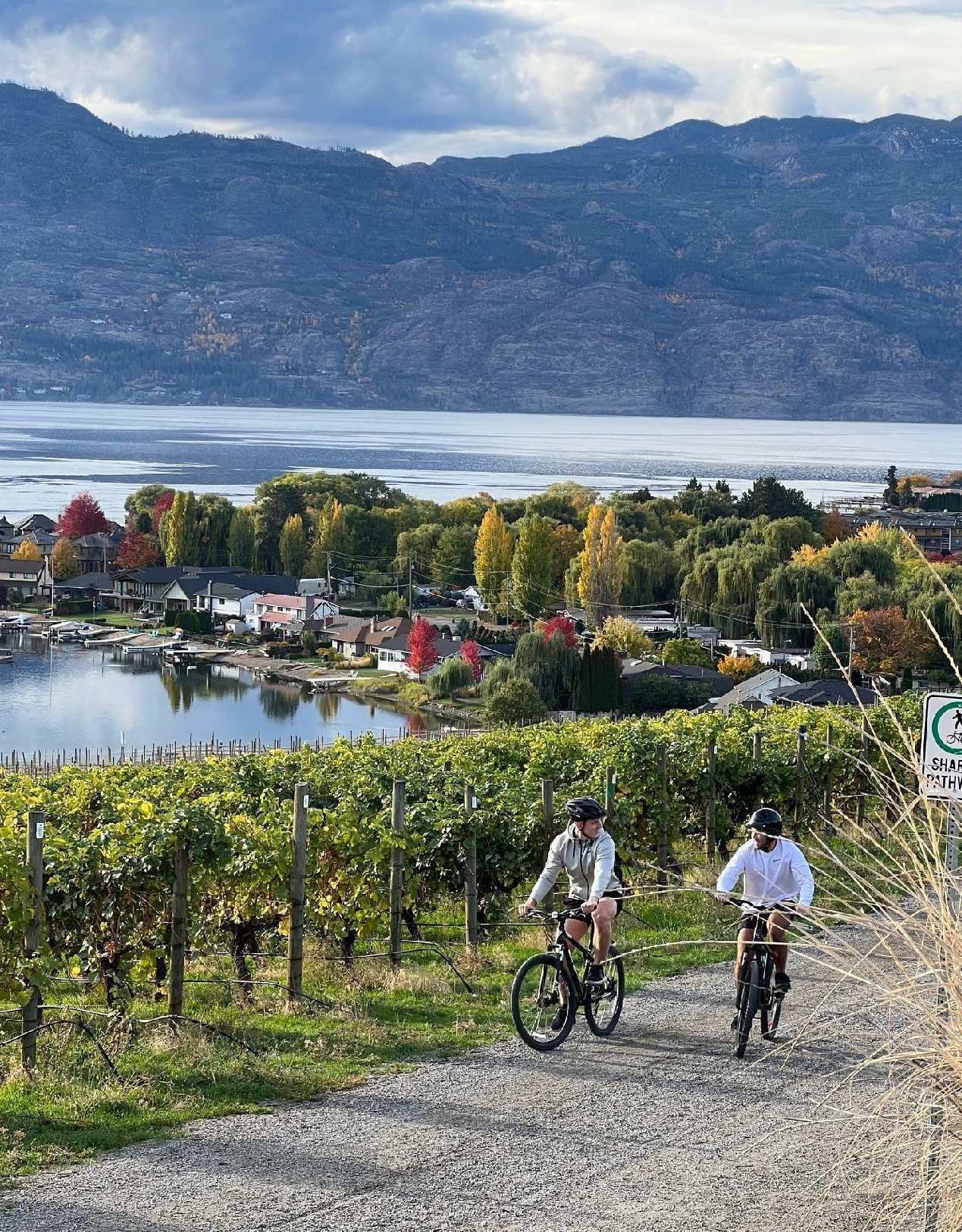
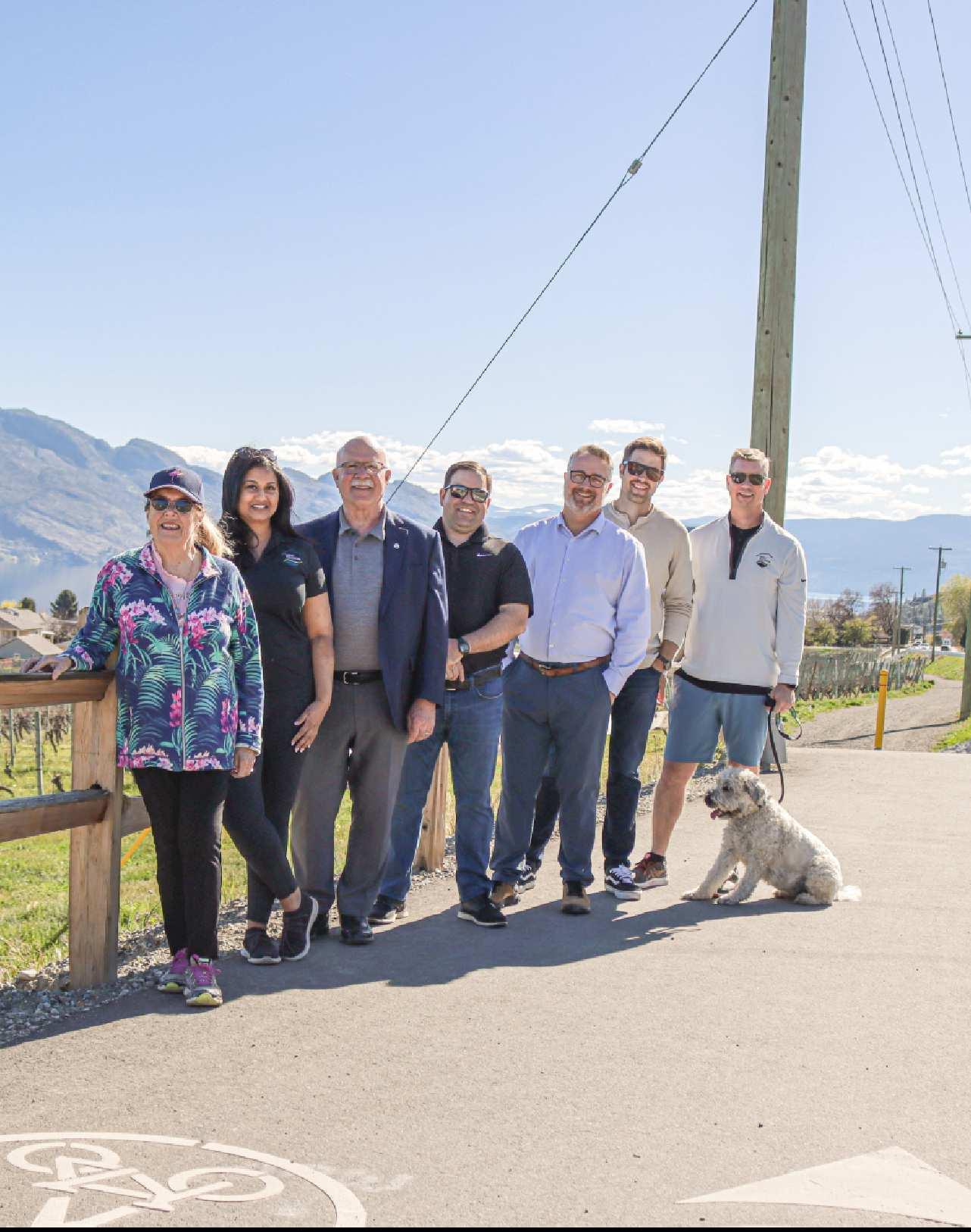
Crews completed a new multi-use pathway along Boucherie Road between Ogden and Green Bay Roads in two phases, which consists of:
An 800-metre pathway from Ogden to Gregory Roads.
A 1.6-kilometre multi-use pathway from Gregory to Green Bay Roads.
A 1.2-kilometre upgrade from Ogden to Gregory Roads which included road widening.
A 780-metre bike lane from Ogden to Gregory Roads.
Pedestrian-activated crosswalks at Gregory, Ogden and Mission Hill Roads.
Street lighting (some solar powered).
The 2023 Road Rehabilitation Program improved 8.9 lane kilometres of roadways.
The City’s new Capital Works Crew completed 37 projects throughout the community.
The City completed construction on the Shannon Lake/Bartley/Stevens Roundabout and Active Transportation Corridor project, which included:
Sidewalk extension from McDougall Creek Bridge to the roundabout.
Sidewalk and cycling lane connections on Stevens Road from Dominion to Westlake Roads, funded by the COVID-19 Resilience Infrastructure Stream.
Sidewalks, bike lanes, utility services and streetlights were extended on the east side of Bartley Road, creating connections from Shannon Lake Road to Highway 97. Improved traffic flow and safety for drivers.
The City constructed a 1,300-metre delineated path on Westlake Road from West Kelowna Road to Pettman Road and a 700metre bike lane on Parkinson Road to Pettman Road.
The City completed active transportation upgrades for Old Okanagan Highway, including 300 metres of additional sidewalks, bike lanes and drainage improvements from Dobbin Road to Ingram Road.
Design work in 2023 included upgrades to Shannon Lake Road from Swite Road to the WFN Boundary, with construction planned for 2024.
Design work for upgrades to the Old Okanagan Highway and Butt Road intersection will be completed in 2024.
The City will continue the Road Rehabilitation Program funded through the Canada Community-Building Fund and Capital Reserves.
Staff will continue to consult with the public and update the Transportation Master Plan, which will set the direction for how we walk, cycle, drive and take transit through the city.
2024 will bring on new projects such as West Kelowna’s first Accessibility Plan.
The City will begin design for upgrades on Elliott Road from Reece to Smith Creek Roads.
Council will renew its annual operating agreement with BC Transit confirming continued levels of service for 20242025.
Proposed Corporate transportation policies, programs and actions include:
The City rolled out the “GeoTab” program for the City’s fleet, which:
Records kilometres driven to improve route efficiencies.
Monitors idling.
Tracks maintenance to help ensure fuel efficiency.
The City was active in GoByBike Weeks.
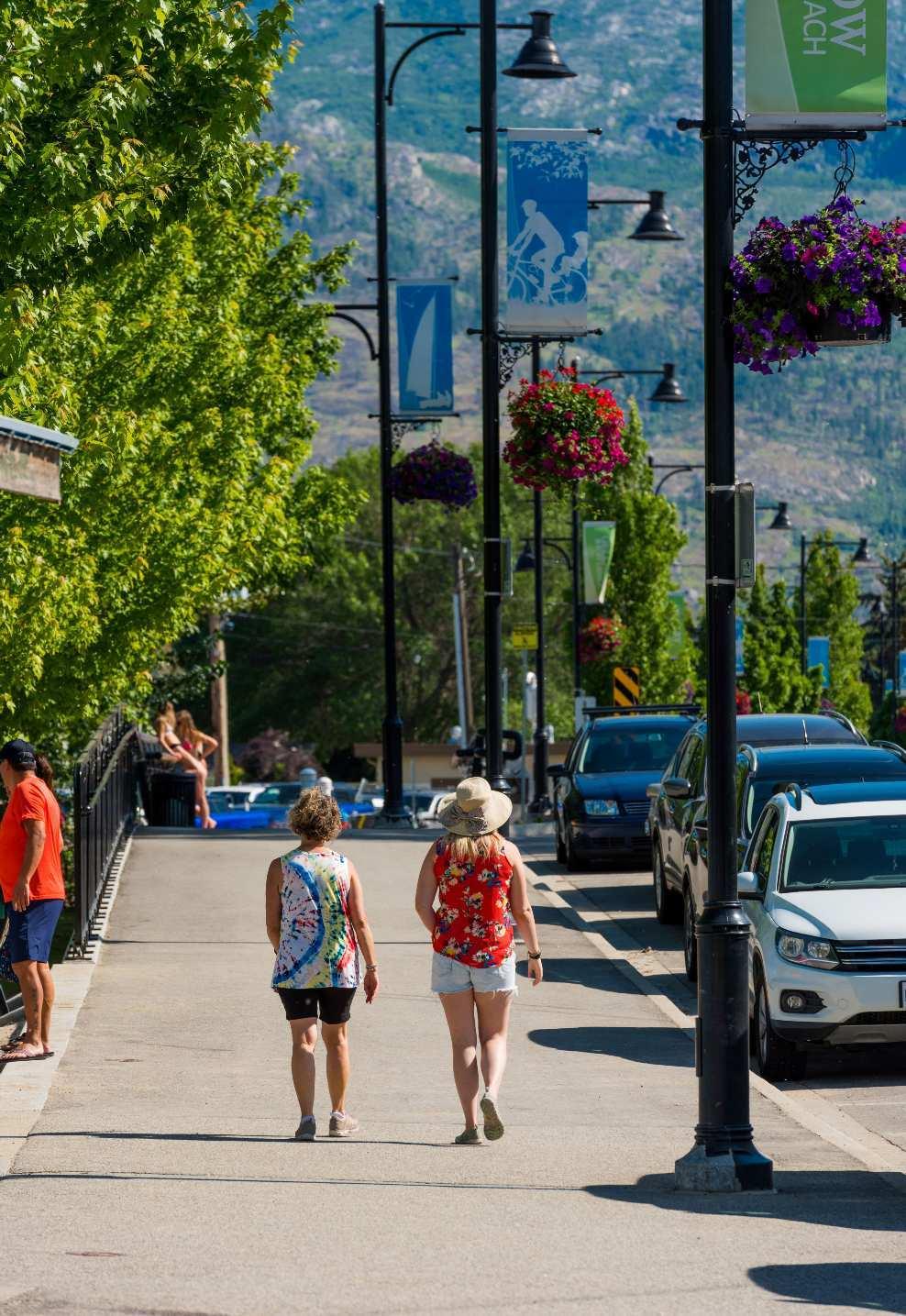
Programs to increase high-occupancy (two or more people) vehicle trips (i.e. carpooling).
Implemented zero-emission vehicle first procurement policy for all local government on-and-off-road vehicles purchases.
Active transportation education and encouragement programs.
Electric vehicle charging studies/planning.
Electric vehicle charging infrastructure investments.
The City will continue to promote and participate in GoByBike Weeks.

We enhanced safety and extended active transportation infrastructure for our community along Boucherie Road.
Upgrades included 780 metres of bike lanes along Boucherie Road from Ogden to Gregory Roads, a 1.6-kilometre multi-use pathway with paved and crushed gravel sections from Gregory to Green Bay Roads, a 1.2-kilometre upgrade of Boucherie Road from Ogden to Gregory including road widenings and an 800-metre pathway, street lighting, and pedestrian-activated crosswalks at Gregory Road, Ogden Road and Mission Hill Road.
The completed Boucherie Multi-Use Pathway runs from Ogden Road to Green Bay Road.
The new multi-use pathway and road upgrades on Boucherie Road have enhanced safety and created new active transportation, healthy living, and tourism opportunities.

Did you know?
Our Capital Works Crew completed 37 projects throughout the City including work to improve drainage, extend sidewalks and bike lanes, upgrade crosswalks and prepare for future infrastructure improvements across our community.

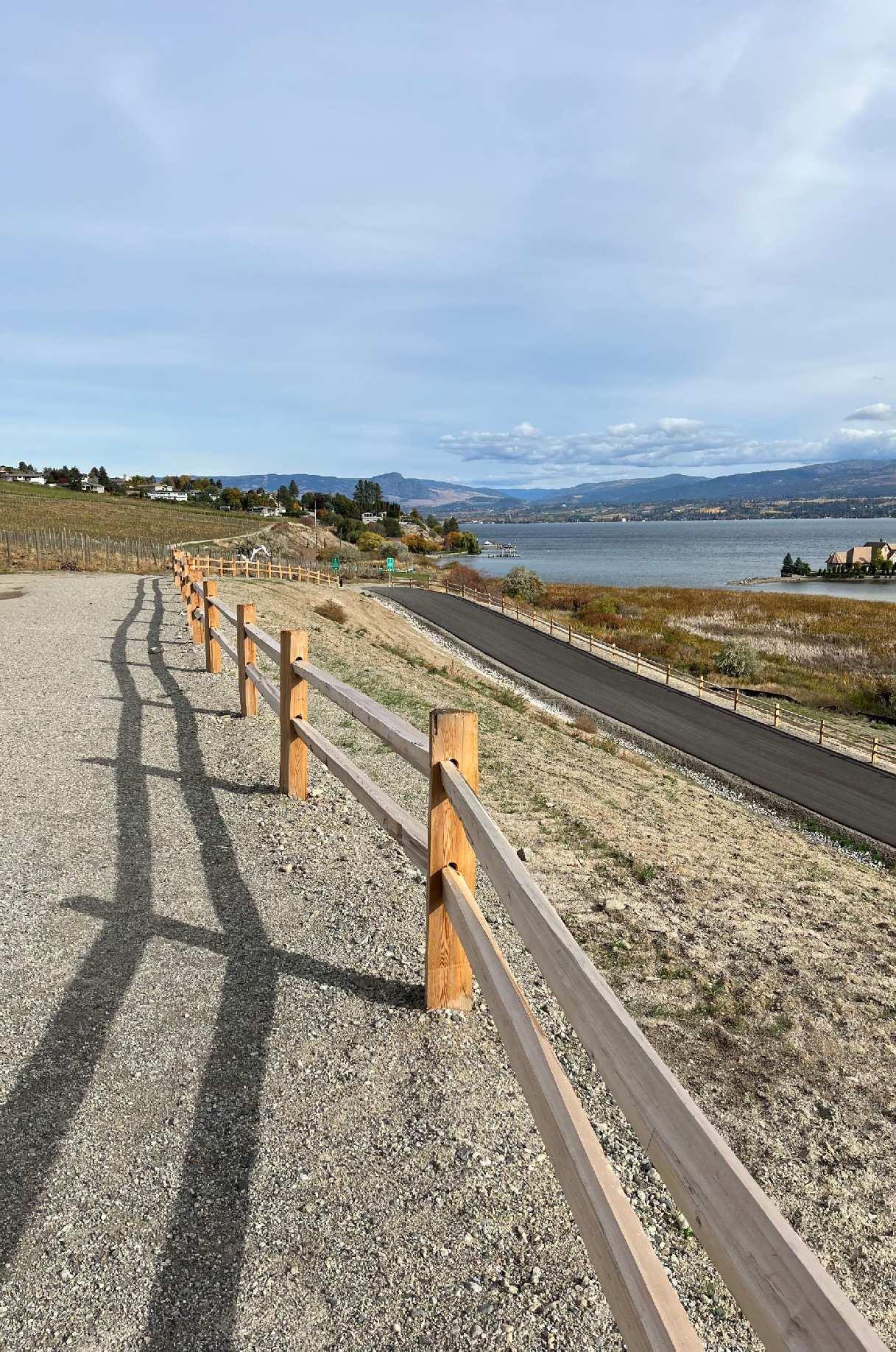
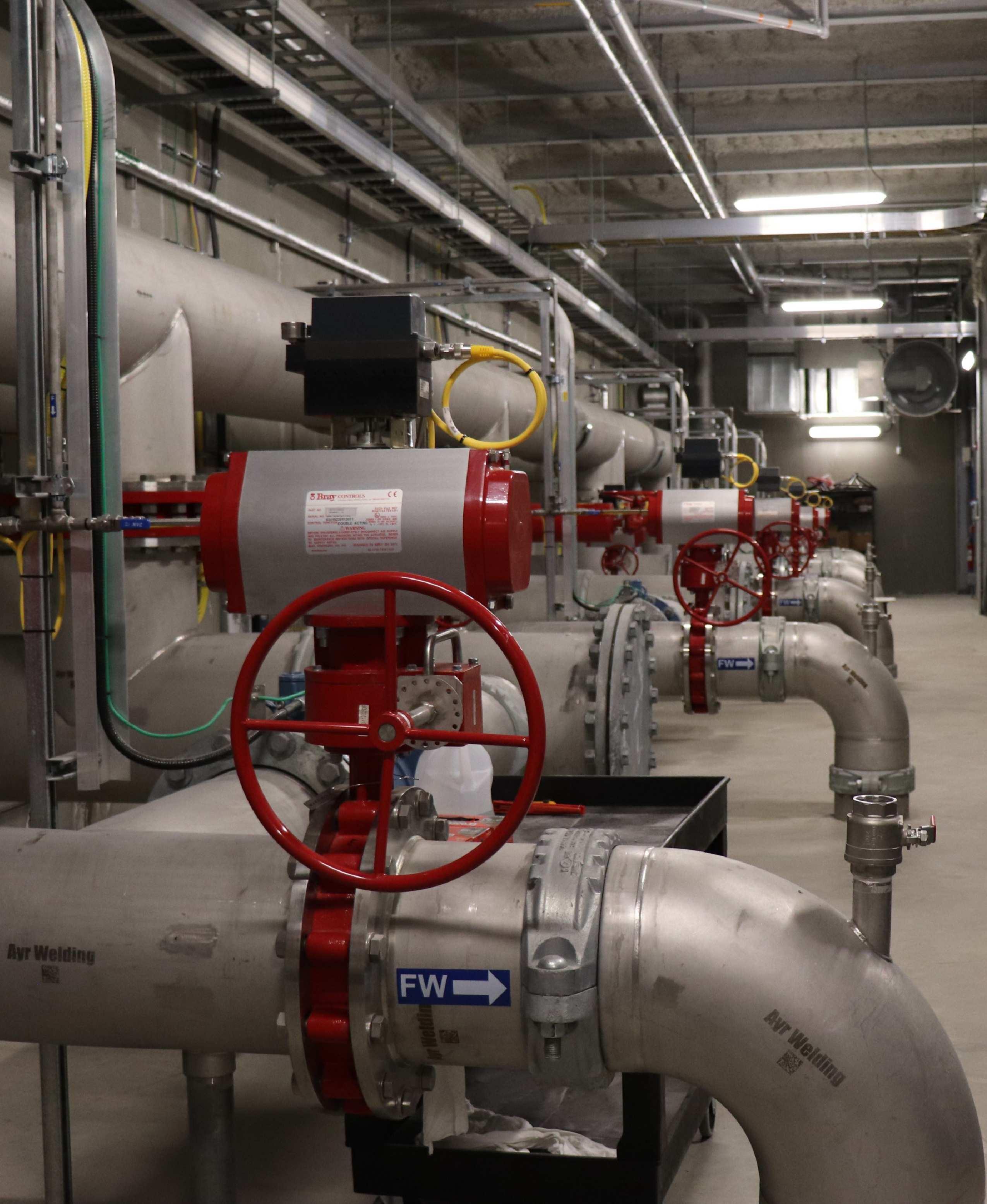
Efficient and sustainable water and wastewater systems provide the necessities of life in ways that encourage conservation, guard public health, protect watersheds and watercourses and reduce GHG emissions. The most efficient systems draw water from undisturbed watersheds, which require less treatment, and are fed by gravity and naturally occurring hydrology, requiring considerably less equipment and energy than those networks that must pump water.
Upgrades to Powers Creek Water Treatment Plant:
A major milestone in 2023 was the completion of the Rose Valley Water Treatment Plant. This facility provides clean, safe, reliable drinking water to more than 19,650 residents of our community.
The City completed 3.7 kilometres of underground watermains connecting residents on the West Kelowna Estates and Sunnyside/Pritchard Water Systems to the new Rose Valley Water Service Area.
The City upgraded the lift station at Sunnyside Road to meet existing and future demands. Lift stations are essential for efficient collection of wastewater and for moving it to higher elevations.
The City made channel improvements in McDougall Creek, near Shannon Lake Road, to complete restoration work and increase the capacity of the creek.
Design work includes new intake screens and conversion to hypochlorite gas for the Powers Creek Water Treatment Plant. The existing screen was not replaced when the plant was built in 2007 and is approximately 50 years old.
Hypochlorite gas will provide a much safer alternative for staff and the community over the existing chlorine gas system.
Construction is targeted for 2024/2025.
Approximately 20 operators continue to monitor quality throughout the City's two water service areas - Rose Valley and Powers Creek.
The City continues to be full partners in the valley-wide Make Water Work program to promote water conservation. Make Water Work is an initiative of the Okanagan Basin Water Board’s WaterWise program.
City staff will monitor and consider implementing Stage 2 Watering Regulations earlier in the season to help conserve water in upland reservoirs.
The City will upgrade the Stevens Road Lift Station.
The City continued work to update the Water Utility Master Plan.
Water-saving energy efficiency fixtures and devices, including automated taps and appliances, will be installed in the new City Hall/Library building to reduce use
The City will begin upgrades on water sample stations for the Powers Creek and Rose Valley water service areas.
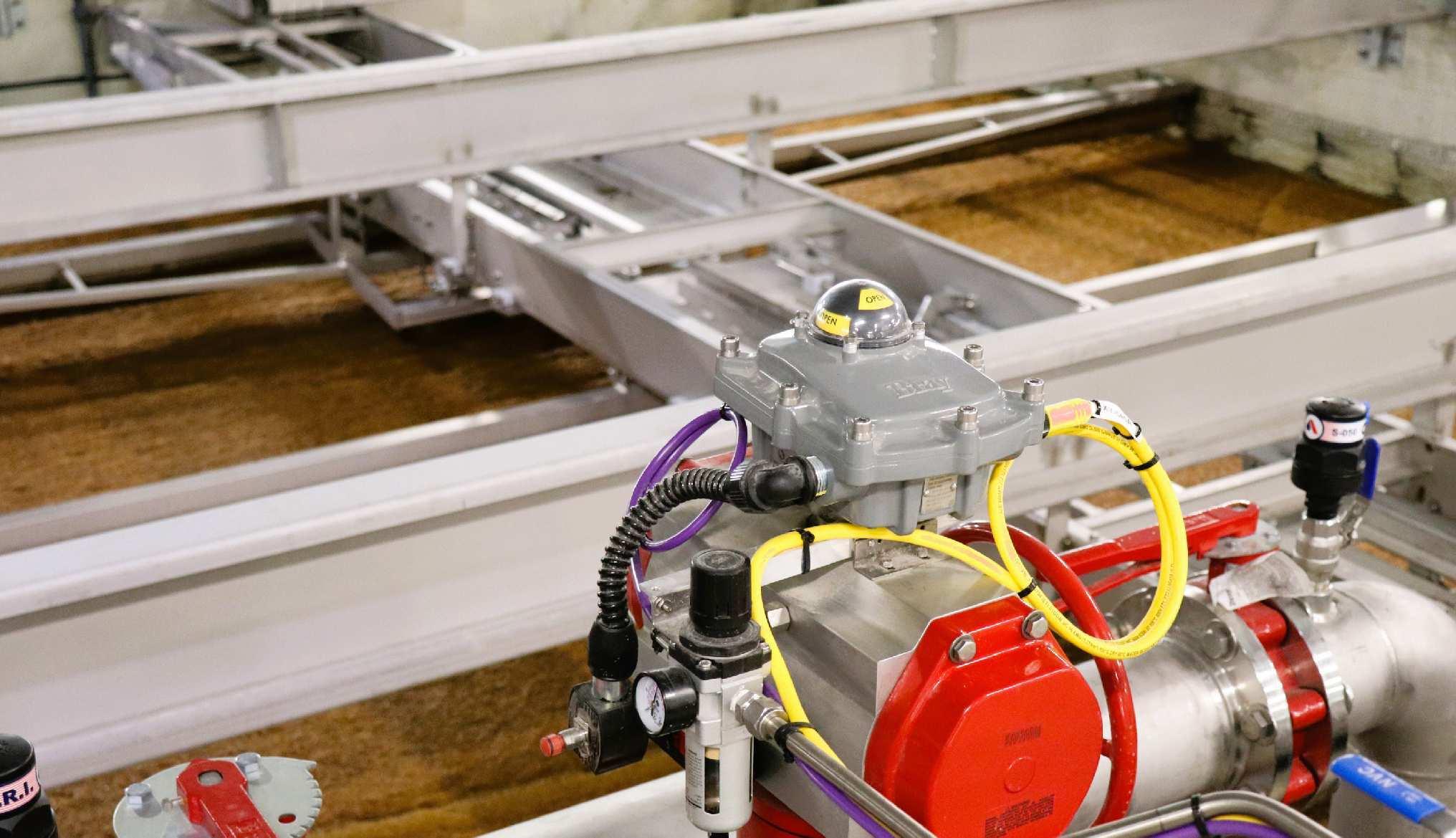
The new Rose Valley Water Treatment Plant (RVWTP) was completed and brought online in 2023. At a total project cost of $75 million, this is the largest project ever undertaken by the City.
The Government of Canada and the Province of British Columbia awarded the City of West Kelowna a funding contribution of $41 million toward construction of Rose Valley Water Treatment Plant under the Clean Water and Wastewater Fund.
The three-storey, 5,245-square-metre facility was built on a 9.7-hectare City-owned property at 1550 Rosewood Drive. The plant has a capacity to deliver 70 million litres of clean drinking water to approximately 19,650 residents living within the former Rose Valley-Lakeview, Sunnyside/Pritchard and West Kelowna Estates water system areas in West Kelowna.
The plant uses coagulation, flocculation, dissolved air flotation, deep bed filtration, ultraviolet and chlorine disinfection to effectively treat our water.
The RVWTP provides drinking water to residents of our community that meets or exceeds provincial and federal guidelines. The plant was turned on in November 2023, providing water in phases to our community!
3.7 km of transmission water mains were installed throughout the City in order to connect customers to the new plant.


More frequent and severe events are occurring as global temperatures increase. Since 2017, British Columbia has experienced recurring, record wildfire seasons and flooding events. Communities must be proactive and identify and mitigate risks early to protect people and infrastructure, and to avoid costly repairs and replacement projects that can disrupt services for weeks or months and take years and cost millions to fully resolve.
In response to climate adaptation and the increasing risk of wildfires, construction began on a comprehensive fire evacuation egress, to be completed in 2024, connecting the Casa Loma and Lakeview Heights neighborhoods. The egress will ensure the safety of residents in Casa Loma and will be used when the safety of the primary route is impassible.
The City hired FireSmart Crew Members to complete wildfire mitigation work near roadways and in 29 parks across the city.
West Kelowna Fire Rescue's FireSmart/Wildfire Mitigation Specialist continues to conduct Home Ignition Zone Assessments, encourage private property owners to complete actions that will improve the survivability of their homes in case of a wildfire, and coordinate community outreach and a FireSmart Family Day to provide education and awareness about preparedness and mitigating wildfire-related risks.
Another egress option for the Glenrosa neighbourhood will be constructed connecting Inverness Road to Pleasantview Road and ultimately Lower Glenrosa Road.
Fifty FireSmart grants were awarded and FireSmart plans were completed in three neighbourhoods to help protect our community:
The City will complete an infrastructure assessment, a feasibility study, and the design for upgrades to the Powers Creek Water Treatment Plant Diversion Structure. Rock Ridge, Casa Loma, and Sunview neighbourhoods received FireSmart Community recognition for their wildfire prevention and resiliency efforts.
2023Completed
Staff continued to monitor and manage, through development and land use controls, the natural environment, including riparian, terrestrial, and hillside areas that are susceptible to development pressures and changing climate conditions.
City staff will complete the Flood Risk Assessment and Mitigation Plan.
The Community Wildfire Resiliency Plan will be monitored and updated in order to ensure both City resources and the community are ready for future wildfire events.
The McDougall Creek Wildfire started 10 kilometres north of the City of West Kelowna on August 15, 2023.
This was the largest wildfire in the history of West Kelowna.
More than 10,000 residents in the City were evacuated in phases over three days, in addition to evacuation orders implemented in the neighbouring community of Westbank First Nation. Additional wildfire activity caused evacuations in the West Electoral Area of the Central Okanagan Regional District, the City of Kelowna and the District of Lake Country.
BC Wildfire Service, together with more than 500 firefighters from West Kelowna Fire Rescue and municipalities across British Columbia and the U.S., were battling the blaze from the ground and air for several weeks.
Our hearts go out to those who lost homes and structures during the wildfire. We also thank firefighters and emergency responders who worked tirelessly to save lives and to prevent the wildfire from destroying many other houses and buildings, including the Rose Valley Water Treatment Plant.
We also thank our community for helping in so many ways during the wildfire and throughout our community's recovery.

With a staff of more than 100 people, West Kelowna Fire Rescue (WKFR) provides services for City of West Kelowna and Westbank First Nation residents and visitors.



Regional District of Central Okanagan and area local governments - partnerships include the Kelowna Regional Transit System, the Westside Waste Water Treatment Plant, the Westside waste transfer station and the Central Okanagan Emergency Operations Centre.
Westbank First Nation - partnerships include West Kelowna Fire Rescue and an agreement to provide parks and recreational facilities and services to all residents living on the Westside.
Emergency Management BC, BC Wildfire Service and FireSmart BC - worked with provincial ministries and agencies to aid the community during times of emergency (i.e. flooding and wildfire) and provide support and education on reducing fire hazard risks.
Okanagan Basin Water Board (OBWB) - the City is a member of the OBWB, which helps promote conservation through the Okanagan WaterWise and Make Water Work initiatives.
Interior Health - collaborate on opportunities to improve community health and wellness, including work on city plans, policies, and initiatives and issuing water quality advisories and boil water notices, as necessary.
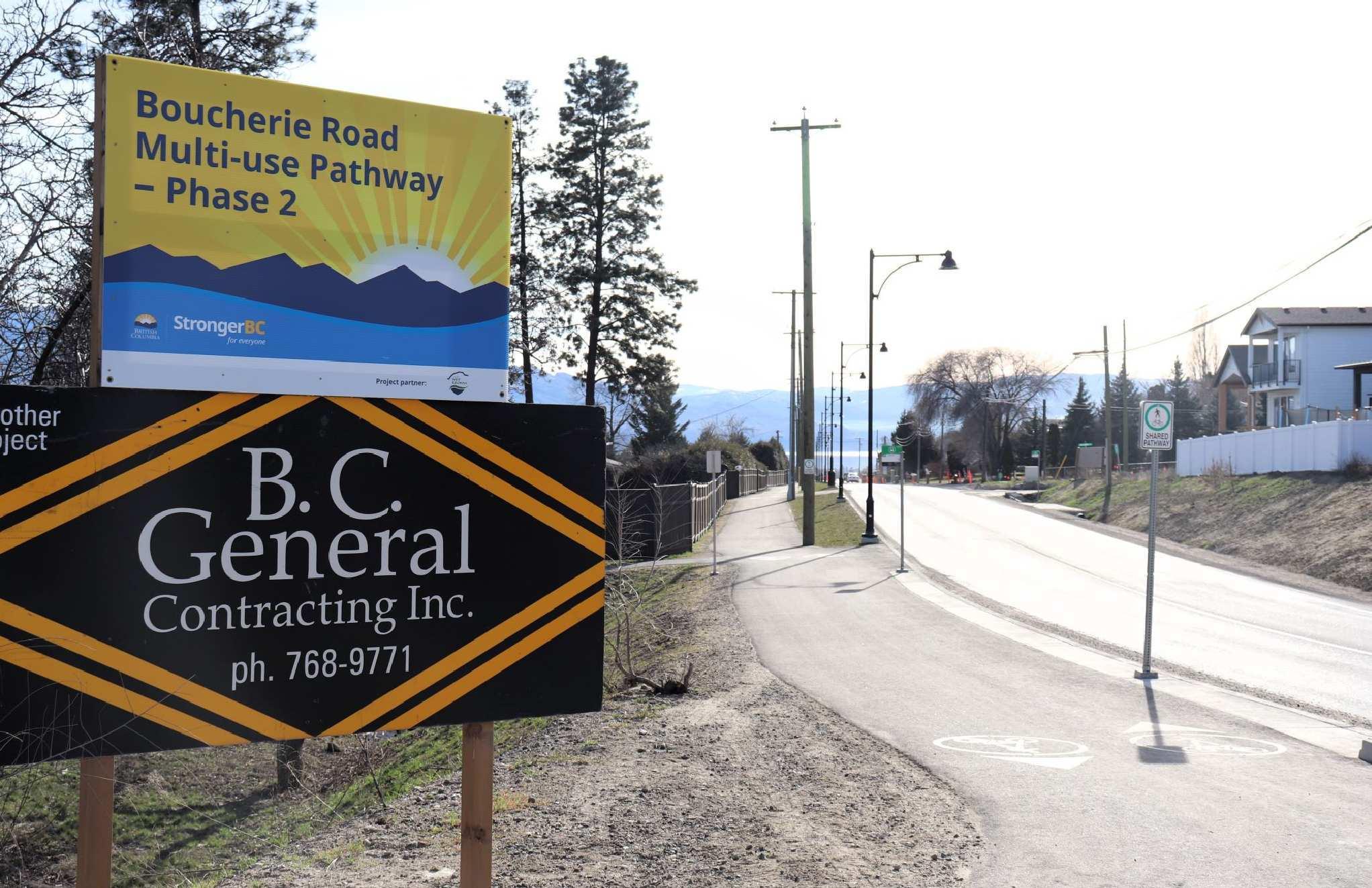

778-797-1000
info@westkelownacity.ca
westkelownacity.ca
Engage
westkelownacity.ca/subscribe
Subscribe westkelownacity.ca/servicerequest


Incorporated by Order of British Columbia’s Lieutenant Governor in Council December 06, 2007
Graphics contained within this document are used under licences. Some photographs are used under agreements and may be restricted to City of West Kelowna promotions and publications. If you have questions about graphics or photography contained within this report, please contact us at communications@westkelownacity.ca.
The 2023 Climate Action Report provides highlights of programs, services and projects and is not a full representation of the City's climate initiatives. If you would like more detailed information, please contact us; we would be happy to help:
Visit westkelownacity.ca
Call 778-797-1000
Email communications@westkelownacity.ca
Write City Hall, 3731 Old Okanagan Highway, West Kelowna, BC, V4T 0G7
